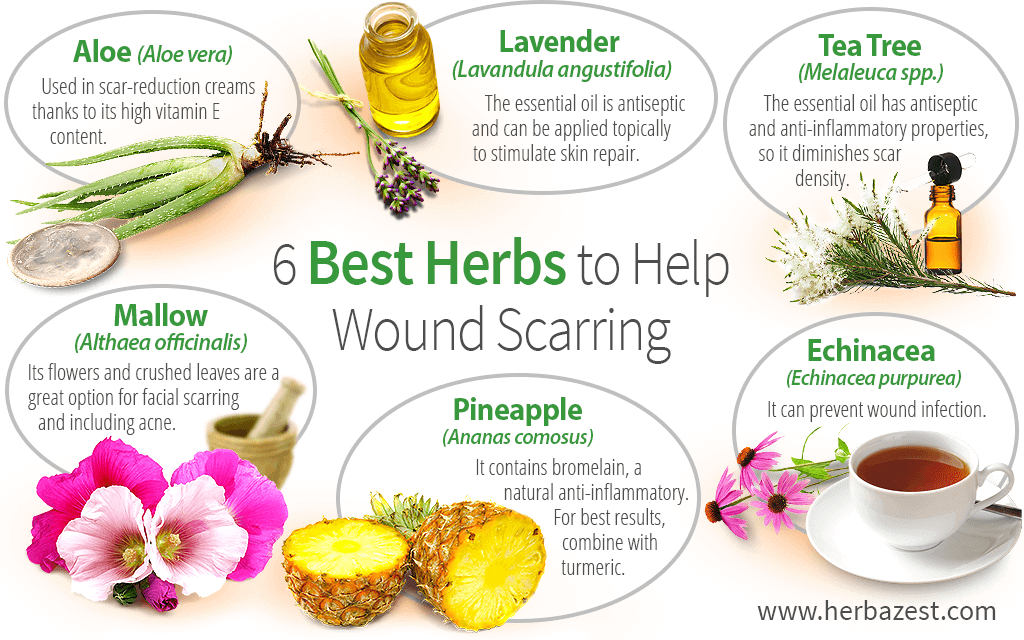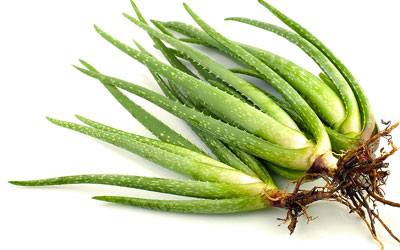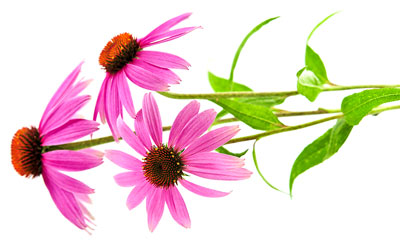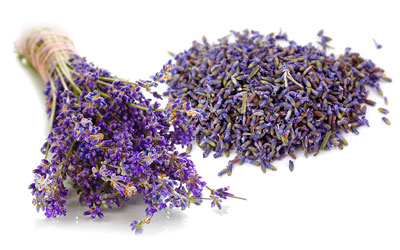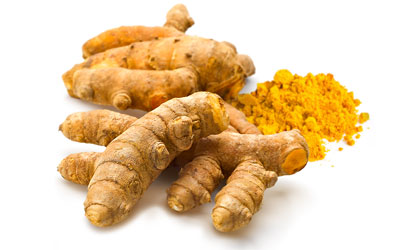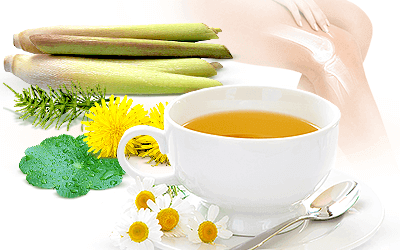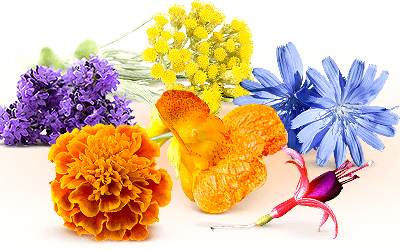As you age, you are likely to bruise and scar more easily: skin becomes thinner, more transparent, and wounds take longer to heal.
A wound is a break in the skin, commonly caused by a cut or a burn. After a wound is inflicted, skin cells multiply to refill the opening in the skin. This can often leave a scar. Although scars are not necessarily painful, from an aestethic point of view, they can be unsightly and lead to feelings of self-consciousness and low self-worth, particularly if scars are facial. The more blood vessels that accumulate in a scar, the denser, darker, and, therefore, more visible it is.
Herbs have been valued for thousands of years for their ability to heal wounds and reduce scarring, and many of the most effective ones are ingredients in commercial scar-reducing creams and products. Keep reading to discover which herbs have anti-inflammatory, antiseptic, and antibacterial properties that can help repair skin tissue and fade scars.
1. Aloe (Aloe vera)
Aloe is extracted from the leaves of Aloe vera; it's full of vitamins A, B, C, and E. While all of them promote skin healing, the most valuable of these is vitamin E due to its antioxidants that neutralize free radical activity and aid skin repair. Aloe's high content of vitamin E makes it a key ingredient in commercially-sold skin products and scar-reducing creams.
2. Lavender (Lavandula angustifolia)
Lavender, especially in the form of essential oil, is an effective scar-reducing herb due to its antiseptic and skin-healing properties. Lavender is antibacterial and can be topically applied to stimulate healthy skin repair.
3. Tea Tree (Melaleuca spp.)
Oil derived from tea tree can be used to treat a variety of skin conditions, including psoriasis, as well as reducing scarring from wounds, though it should not be used to treat burns. It has antiseptic and anti-inflammatory functions to minimize scar density, and it can be applied directly to the skin as it does not irritate the mucous membranes. For this reason, tea tree is the best option for facial scarring, including acne markings.
4. Marsh Mallow (Althaea officinalis)
Marsh mallow, an herb traditionally used to make the famous fluffy dessert, also has medicinal properties. The leaves and flowers are crushed and applied topically to reduce scarring in wounds from burns, sores, and ulcers. The herb reduces irritation and has anti-inflammatory properties.
5. Pineapple (Ananas comosus)
Pineapple contains bromelain, an enzyme used particularly post-surgery to minimize swelling, scarring, and bruising and reduce healing time. Bromelain is often extracted from the fruit, but its effects can nonetheless be enjoyed by simply consuming pineapple. Eating it in conjunction with turmeric can boost the function of bromelain.
6. Echinacea (Echinacea purpurea)
Many scars occur when a wound becomes infected; echinacea can be consumed to protect against infection during the healing process. However, this herb should not be consumed by those with autoimmune diseases, such as lupus or rheumatoid arthritis.
Although medicinal herbs can be consumed orally while a wound is still open, before applying any herbs topically to the skin, it is advisable to wait until the wound has closed and new skin has formed. Herbs have long been celebrated for their skin-healing properties and are a reliable go-to for eliminating the blemishes, self-consciousness, and confidence issues that scarring can cause.
Sources
- Indian Journal of Plastic Surgery, Wound care with traditional, complementary and alternative medicine, 2012
- National Institute on Aging, Skin Care and Aging
- Medicinal Plants of the World


